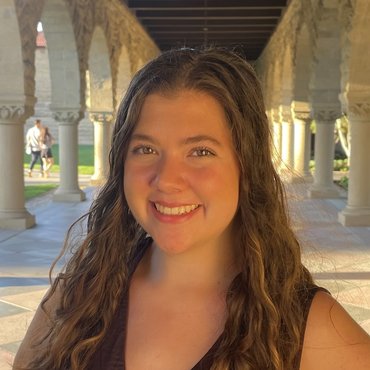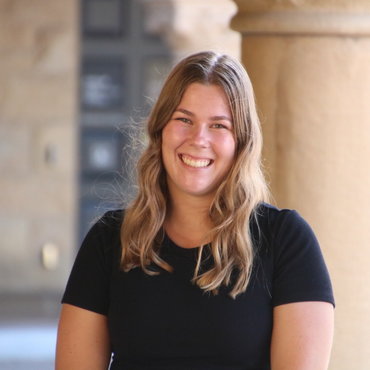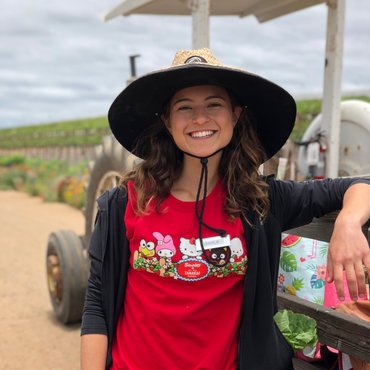
Alina Wilson, '24
Using Social Media to Address COVID-19 Vaccine Hesitancy in the Black Community
Connecting scared, often under-resourced patients with quarantine advice and financial assistance as a contact tracer for the Santa Clara County Public Health Department gave me purpose while I struggled through endless Zoom classes during the pandemic. I began to realize that ending the pandemic means ensuring that those with the greatest need are protected. I also saw first hand the effect of vaccine hesitancy on the Black community.
I assisted with vaccine outreach at the Santa Clara County Public Health Department at the beginning of the pandemic through the Cardinal Commitment program. Every single person I spoke to at the time was excited to get vaccinated. Yet, months later, Black person after Black person refused to get vaccinated when I offered to connect them with vaccine-related resources.
Many of the Black community members I spoke with cited vaccine misinformation rather than scientific data. I researched vaccine hesitancy in the Black community and realized that the scope of the problem was much larger than I expected: Historical and current inequities have caused the Black community to feel a deep distrust of vaccines and the medical system.
Called to action to serve my community, I founded “Vaccinating Oklahomans. Inspiring Cooperation. Engaging Skepticism.” (V.O.I.C.E.S.) with grant funding from the Rajendra Social Impact Foundation. I worked with the Stanford School of Medicine to develop a curriculum to train 25 young Black changemakers to use relational organizing to increase vaccination rates in the Black community in Oklahoma.
I quickly ran into a major roadblock. Although I had selected the high school students from a pool of local Black student leaders, many of the students I was working with experienced social anxiety and felt afraid to implement the relational organizing program I had developed for them.
I felt a little panicked. I had spent months developing the curriculum with the input of extremely busy Stanford faculty and Black physician leaders in Oklahoma. Had all of my work been for nothing? I began to question myself as a leader: How had I not anticipated this?
Yet, I knew that the most important part of leading a service organization is meeting the needs of your community, as well as your volunteers. I reached out to my mentors and grant funders in order to adjust the curriculum. My new idea was to let the students play to their strengths by reimagining the relational organizing program as a grassroots social media campaign.
Because of this change, the students felt more motivated to participate and learn about community organizing and fighting misinformation. The hybrid program strategy allowed the more extroverted teens to learn more about relational organizing while encouraging all the teens to utilize social media to reach out to their networks.
V.O.I.C.E.S. used this method to distribute virtual educational materials on COVID-19 vaccines and health materials to thousands of people. From this experience, I learned to adapt my initial vision to changing circumstances while always prioritizing the needs of both the community and the volunteers.


